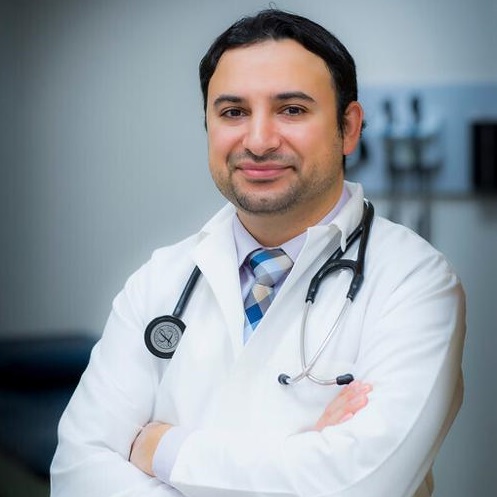Listening Is Key for Internal Medicine Doctor Sumaiya Iqbal, M.D.

September 11, 2023
Because both her parents are physicians, Sumaiya Iqbal, M.D., listened to many fascinating discussions about medicine around the dinner table when she was young. Back then, she couldn’t contribute nearly as much to the conversation as she can now, as an internal medicine doctor at Hackensack Meridian Medical Group Primary Care—Piscataway.
Dr. Iqbal treasures time with her family—her husband and two young children, whom she considers her greatest gift—and she makes them a priority, as she does her patients. Originally from Rochester, New York, Dr. Iqbal attended medical school at the State University of New York at Stony Brook, then spent time in Manhattan for her residency. Now, she’s right at home in the Garden State, surrounded by family and friends.
Happy to converse with patients in English, Spanish or Urdu, Dr. Iqbal is eager to foster long-standing relationships with them and document their journeys as they use her advice to improve their overall health.
Doctors want to educate patients to make positive change, and change isn’t always easy for anyone. How do you approach this?
Starting or breaking a habit is hard, so we work together to come up with SMART (specific, measurable, achievable, relevant and time-bound) goals, and I give them a tracking sheet to bring to their next visit. I might have them set an appointment reminder on their phone for when it's time to exercise to get them started with some action right in the office.
What specific advice do you find yourself offering frequently?
I will talk about the basics, including what they eat and doing enough movement. I focus on similar principles to MyPlate, from the U.S. Department of Agriculture, emphasizing portion control. Half a plate should be produce—fruits and vegetables—with one-quarter grains or starch, and one-quarter protein. I want my patients to be more mindful about what they eat, and journaling helps with that. Everyone’s diet needs and preferences are different.
What’s your best advice about movement?
If you break down the national physical activity recommendations, 75 minutes of vigorous or hard-to-talk activity comes out to 11 minutes a day, and 150 minutes of moderate activity (meaning can talk or sing) would be 22 minutes a day. You could split that into two 11-minute sessions or five to six minutes done four times in the day. That seems a lot more doable than hearing that you must do 75 or 150 minutes a week.
Next Steps & Resources:
- Meet our source: Sumaiya Iqbal, M.D.
- To make an appointment with Dr. Iqbal or a primary care doctor near you, call 800-822-8905 or visit our website.
The material provided through HealthU is intended to be used as general information only and should not replace the advice of your physician. Always consult your physician for individual care.






